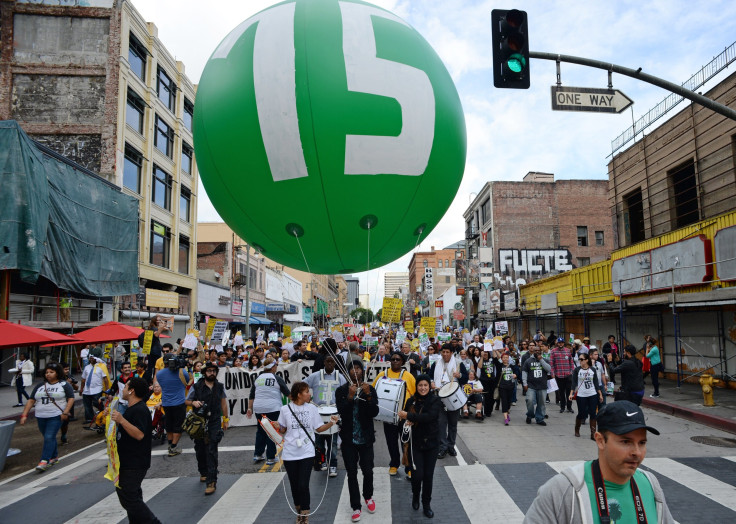California Minimum Wage: Lawmakers, Labor Unions Reach Tentative Agreement Over $15 An Hour Pay

Lawmakers and labor unions in California reached a provisional agreement Saturday to increase the state’s minimum wage from $10 to $15 per hour, according to reports. The deal is yet to be finalized and it would be presented to the Legislature as part of the state Sen. Mark Leno’s minimum wage bill that was halted last year, the Associated Press (AP) reported.
Leno told AP that the deal would avoid taking the matter to the ballot. One union-backed initiative has been qualified for the ballot, and a second competing measure is also trying to qualify, the report added.
“This is an issue I've been working on for many years,” Leno told the news agency. “The governor and stakeholders have all been negotiating earnestly and in good faith for some time.”
While Leno declined to confirm details of the agreement, several proposals state that the wage should be increased about a dollar every year until it reaches $15 an hour, the AP reported.
The deal would increase minimum wage across California from $10 an hour to $10.50 on Jan. 1, 2017, with a 50-cent increase in 2018 and then $1-per-year increment to take it to $15 through 2022, the Los Angeles Times reported, citing a document. The newspaper added that businesses with fewer than 25 employees would have an extra year to meet the terms of the deal. California Gov. Jerry Brown is expected to announce the agreement formally Monday, the newspaper reported.
The move is likely to settle disputes between the state’s legislature, which is dominated by Democratic, and labor unions’ activists. The $15 minimum pay per hour would become the highest statewide wage in the country so far. The state’s minimum wage was set at $8 an hour between 2008 and 2014, despite U.S. average yearly inflation being about 2 percent.
© Copyright IBTimes 2025. All rights reserved.






















